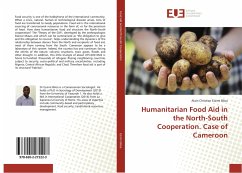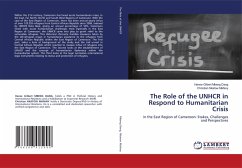
Political Neutrality and Humanitarian Aid
Practical Implications of Organizational Ideology
Versandkostenfrei!
Versandfertig in 6-10 Tagen
32,99 €
inkl. MwSt.

PAYBACK Punkte
16 °P sammeln!
This study investigates how the ideological interpretations of the principle of neutrality affect the practices of humanitarian aid organizations in conflict situations. I study the International Committee of the Red Cross (ICRC) and Médicins Sans Frontières (Doctors without Borders/MSF). I seek examples from the current conflict in Darfur, Sudan to illustrate my findings. The purpose of this study is to determine how the organizations deal with delivering aid in a highly politicized environment while maintaining neutrality. I conclude that neutrality impacts practice, depending in part on t...
This study investigates how the ideological interpretations of the principle of neutrality affect the practices of humanitarian aid organizations in conflict situations. I study the International Committee of the Red Cross (ICRC) and Médicins Sans Frontières (Doctors without Borders/MSF). I seek examples from the current conflict in Darfur, Sudan to illustrate my findings. The purpose of this study is to determine how the organizations deal with delivering aid in a highly politicized environment while maintaining neutrality. I conclude that neutrality impacts practice, depending in part on the organization s goals, by enhancing the level of organizational responsibility for aid s impact, minimizing its coordination with other aid agencies, states or international organizations, and either eliminating the freedom to denounce abusive practices or causing dilemmas within organizations over whether or not to publicly denounce the parties to a conflict. Neutrality is more often a pragmatic means to an end rather than a theoretical ideal. Additionally, the neutrality of an organization depends not only on its intention but also on how it is perceived by the parties to the conflict.












